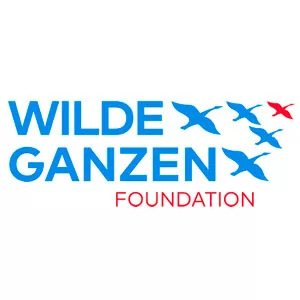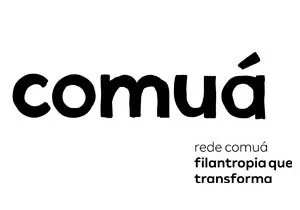- Home
- STRATEGIES FOR ACTION
STRATEGIES FOR ACTION
Our courses of action to strengthen popular struggles for justice, equality, and rights.
CESE understands its strategies for action systemically. Support to projects; training activities; dialogue, networking and mobilizing support; and communication activities are therefore planned jointly, with each feeding back to the other, in order to fulfil our institutional mission to strengthen grassroots organizations, social movements and diaconal services.

On the one hand, we work to strengthen supported organizations through training projects; on the other, Dialogue and Networking activities are fundamental for ensuring close alignment between our institutional activities and the priorities of the organizations and social movements, so as to feed into our analyses and project monitoring, contributing to the detail of our training content, our methodology, and our planning to mobilize support.
Over this four year period, we will intensify our ecumenical activities in the Amazon to strengthen the resistance and fight for the rights of traditional peoples and communities, enhancing ecumenical and inter-religious dialogue against fundamentalism; help to set up and consolidate autonomously-organized funds with indigenous, quilombola and other local social movements and continue, in various ways, to strengthen the organizations of traditional peoples and communities that work for the defence of rights in the region.
PROJECT SUPPORT SERVICE
CESE was a pioneer in prioritizing one-off support for small projects, favouring grassroots movements at strategic moments in their organization, enabling the community to govern the planning and execution of their own activities and motivating the search for autonomy. The same is true of the support provided to the churches’ diaconal activities.
The Small Projects Programme supports initiatives from grassroots rural and urban organizations, representatives of the various sectors that constitute Brazilian society, for example indigenous populations, quilombolas and other black populations, traditional communities, family farmers, the landless, those affected by large-scale projects, women, young people, etc.
DIALOGUE AND NETWORKING
CESE coordinates and dialogues with social movements, churches, sources of funding and other support, as well as other organizations, in order to commit christian churches and other faith traditions to the cause of human rights from an ecumenical and inter-religious perspective and to better align with the grassroots movements’ agendas for struggle. This strategy comes about through participation in strategic networks and forums, and by promoting activities involving churches, sources of funding and other support, social movements and other partners.
CESE also supports Ecumenical Dialogue and Relationships. This strategy places an emphasis on the defence of the secular State, and is understood as an expression of CESE’s identity (particularly in response to the setbacks to ecumenical dialogue and relationships in Brazil), and commitment to the defence of rights. This includes activities such as campaigns, consultations, seminars, debates, workshops, contributions to publications and participation in the ecumenical movement’s national and international networking arenas in order to strengthen their approach to the defence of rights and to extend inter-religious dialogue.
STRATEGIC COMMUNICATION
Communication is understood as strategic, to increase the visibility of the causes defended by the grassroots movements, reassert the importance of human rights and combat the growing criminalization of the grassroots movements, in counterpoint to the hegemonic media and networks. CESE seeks to raise awareness with its key audiences, the christian churches and other expressions of faith so that they commit to human rights, particularly in a context of growing religious fundamentalism. To this end, it hosts public events to give voice to perspectives from the social movements and is a member of communication collectives in order to enhance its relationship with grassroots communicators. We make pronouncements through public positioning, prepare and participate in campaigns, and produce content for our communication channels, shaped by the defence of rights
In addition to these methodological strategies, CESE is concerned with its own institutional robustness. This is partly focused on fundraising, to confront the growing challenge of financial, political and technical sustainability. We understand that fundraising is also a feature of our role in democratizing access to funding sources for local organizations, expanding opportunities for support, which is why we offer training in fundraising and encourage those from national and international cooperation to join our debates with the grassroots movements.
Regarding fundraising, in addition to our historical relationships with ecumenical cooperation agencies, ongoing dialogue with other funding sources (including domestic ones), and the pursuit of grant funding and new sources, CESE also works to develop campaigns and promote events, often in partnership with other organizations in the same field. All our fundraising activities are aimed at mobilizing people, resources and support for the diversification of sources, including individual donors and access to public funds based on grant funding and Law 13019/2014, which governs the Regulatory Framework for Civil Society Organizations (Marco Regulatório das Organizações da Sociedade Civil: MROSC).
TRAINING
Training activities are guided by the ecumenical values of justice, peace and the integrity of creation, based on the theoretical framework of Liberation Theology – associated with developments in this theology regarding gender, race and ethnicity – and on the principles of Popular Education, such as shared dialogue and the political view of training as a pathway to strengthen the grassroots fight for social transformation.
CESE runs training to strengthen the capacities of grassroots organizations in their fight for rights. This training is provided in various formats, and focuses on a range of topics for a range of audiences from different regions, particularly on our priority regions (North, Northeast and Centre-West). Gender, race/ethnicity and social classes are structural features of our training processes. To this end, we have sought to improve activities in order to enhance political and technical quality; established a benchmark consultancy to monitor and guarantee alignment between methodology and topic; and defined indicators for a database that supports monitoring and alignment with the organization’s criteria to benefit priority audiences.
ECUMENISM AND INTER-RELIGIOUS DIALOGUE
CESE also works in Ecumenical Dialogue and Relationships. This strategy places an emphasis on the defence of the secular State, and is understood as an expression of CESE’s identity, particularly given the setbacks in Brazil to ecumenical dialogue and relationships and the country’s commitment to the defence of rights. Activities include campaigns, consultations, seminars, debates, workshops, contributions to publications and participation in the ecumenical movement’s national and international networking arenas, in order to strengthen their approach to the defence of rights and to extend inter-religious dialogue.
MOBILIZING SUPPORT
This strategy confirms CESE’s position as an ecumenical organization for the defence of rights at national and international level. We seek to influence the public debate through activities that express this role, drawing society’s and the State’s attention to serious rights violations. Depending on the context, these activities are undertaken jointly, especially with the ecumenical movement, to involve as many social actors as possible, provide greater visibility and amplify effects.
SEE WHAT THEY SAY ABOUT US
CESE was set up during the most violent year of the Military Dictatorship, when torture had been institutionalized, when arbitrary imprisonment, killings and the disappearance of political prisoners had intensified. The churches had the courage to come together and create an institution that could be a living witness of the Christian faith in the service of the Brazilian people. I’m so happy that CESE has reached its 50th anniversary, improving as it matures.
In the name of historical and structural racism, many people look at us, black women, and think that we aren’t competent, intelligent, committed or have no identity. Our experience with CESE is different. We are a diverse group of black women. We are in varied places and have varied stories! It’s important to know this and to believe in us. Thank you CESE, for believing in us. For seeing our plurality and investing in us.
I am a macumba devotee, but I love being with partners whose thinking is different from ours and who respect our form of organization. CESE is one such partner: it helps to build bridges, which are so necessary to ensure that freedom, diversity, respect and solidarity can flow. These 50 years have involved a lot of struggles and the construction of a new world.
Over these 50 years, we have received the gift of CESE’s presence in our communities. We are witness to how much companionship and solidarity it has invested in our territories. And this has been essential for us to carry on the struggle and defence of our people.
You have to praise CESE’s capacity to find answers so as to extend support to projects from traditional peoples and communities, from family farming, from women; its recognition of the multiple meanings of the right to land, to water and to territory; the importance of citizenship and democracy, including environmental racism and the right to identity in diversity in its discussion agenda, and its support for the struggles and assertion of the values of solidarity and difference.
When we hear talk of the struggles of the peoples of the waters, of the forests, of the semi-arid region, of the city peripheries and of the most varied organizations, we see and hear that CESE is there, at their side, without replacing the subjects of the struggle. Supporting, creating the conditions so that they can follow their own path. It is this spirit that we, at ASA, want you to maintain. We wish you long life in this work to support transformation.




















